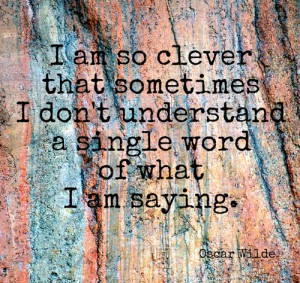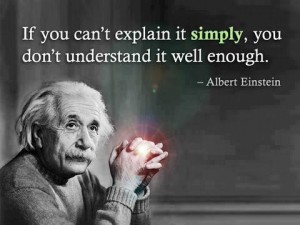[鋤書坑愚由謹慎詞彙開始]
凡是愛智的人,必然重視思考。
名稱和詞彙是人類創造、用來分辨事物和概念,
以達到溝通目的的工具。
由於我們的思考不能夠擺脫語言和符號,
所以重視思考的人,必然重視語言和文字,
對於重要詞彙和概念的真正意思,一定會花精神去研究。
文句少歧義,詞彙少歧義,概念少歧義,
理解才會清晰,閱讀速度才會快,
人與人之間的溝通才會清晰,
溝通清晰,才會免除誤會,節省溝通的時間,
溝通清晰,任何有價值的辯論才可以節省時間。
Words are not as satisfactory
as we should like them to be,
but, like our neighbours,
we have got to live with them
and must make the best
and not the worst of them.
( Samuel Butler )
Be impeccable with your word.
Speak with integrity.
Say only what you mean.
Avoid using the word to speak against
yourself or to gossip about others.
Use the power of your word
in the direction of truth and love.
( Don Miguel Ruiz )
如果有人說,只要書讀得好,才能做個被人看得起的人,
那麼愛智的人一定會問「好」的標準是甚麼?
需要達到怎麼樣的程度?
是指能夠背誦嗎?是指讀書明理嗎?是指能夠融會貫通嗎?
還有,被人看得起是指被怎麼樣的人看得起?
Accuracy is the twin brother of honesty;
inaccuracy, of dishonesty.
( Nathaniel Hawthorne )
古希臘哲學家一早就明白這個課題的重要性,
就是「人類的語言能否傳達真確的知識」
及「詞彙和它描繪的東西或概念之間的關係」。
所以愛智者「鋤書坑愚」的時候,常常會問一個問題,
就是「作者究竟說了些甚麼,想說些甚麼?」
所有勤奮「鋤書」的人都需要明白:
含糊、艱澀、看似高深的詞彙,
有時是用來掩飾空洞的內容;
有時是用來表達半桶水、依然有點含糊的思考,
因為作者自己也不太清楚詞彙確實的意思;
有時是用來嚇唬讀者,意圖提高作者的身分;
有時只不過是因為作者懶惰,將別人的詞彙照搬如也。
不少文學家喜歡用曖昧的文字來寫新詩,
意圖在看似優美文學的掩護之下,表達含糊的思考,
瞞騙讀者相信他既是一個文學家,也是一個哲學家。
Authors should use common words to say
uncommon things. But they do just the opposite.
We find them trying to wrap up trivial ideas
in grand words…
Their sentences perpetually stalk about on stilts.
( Arthus Schopenhauer, Parerga and Paralipomena, Vol.II.,23, 1851 )
Philosophy is a battle against the bewitchment of
our intelligence by means of language.
( Ludwig Wittgenstein, Philosophical investigations, 1953 )
The definition of terms is the beginning of wisdom.
( Socrates )
有時作者傾向於自我安慰,認為自己的作品屬於曲高和寡,
而事實上卻是概念模糊,定義曖昧,用詞隱蔽晦澀,
甚至會令人懷疑連作者也不明白他自己究竟是在說甚麼。
If thought corrupts language,
language can also corrupt thought.
( George Orwell )
Whenever the speech is corrupted so is the mind.
( Lucius Annaeus Seneca )
When an author is too meticulous about his style,
you may presume that his mind is frivolous and
his content flimsy.
( Lucius Annaeus Seneca )
There is no greater impediment to the advancement
of knowledge than the ambiguity of words and
unnecessary rhetorical adornment arising from
vagueness of thought. When a right thought springs
up in the mind, it strives after clearness of
expression, and it soon attains it. A man who is
capable of thinking can express himself at all times
in clear, comprehensible, and unambiguous words.
( Thomas Reid / Arthur Schopenhauer )
曖昧的詞彙和含糊的思考,
除了會損害思考能力之外,亦會損害心靈,
甚至可以導致罪惡,因為可以被居心不良的人利用。
To express oneself badly is not only faulty
as far as the language goes,
but does some harm to the soul.
( Socrates )
False words are not only evil in themselves,
but they infect the soul with evil.
( Socrates )
The misuse of language induces evil in the soul.
( Socrates )
By and large,
language is a tool for concealing the truth.
( George Carlin )
By using stale metaphors, similes and idioms,
you save much mental effort,
at the cost of leaving your meaning vague,
not only for your reader but for yourself.
( George Orwell )
Ambiguity in words, ideas and concepts
not only damages our ability to think clearly,
but also leads to inner confusion.
Furthermore, it can become a root of evil.
( Jason Ling )
真誠是寫作的先決條件。真誠的人,自然會摒棄愚昧和虛偽。
The discipline of the written word
punishes both stupidity and dishonesty.
( John Steinbeck )
To hold a pen is to be at war.
( Voltaire )
The more books we read, the clearer it becomes
that the true function of a writer is to produce
a masterpiece and that no other task is of any
consequence.
( Cyril Connolly )
Sometimes something worth doing
is worth overdoing.
( Stanislaw Jerzy Lec )
「君子之於天下,功不必自己出,名不必自己成;
苟吾書得行,吾言得用,
使天下識一分道理,享一分太平,
則君子之心畢矣。」 (清。陸世儀)
當一位真誠的作家有了足夠的思考能力之後,
分享就成為自然而然的事。
所以足夠的思考能力是寫作的第二個條件。
Life is short. There is no time
to leave important words unsaid.
( Paulo Coelho, 2009 )
Better to write for yourself and have no public,
than to write for the public and have no self.
( Cyril Connolly )
If there’s a book that you want to read,
but it hasn’t been written yet,
then you must write it.
( Toni Morrison )
A writer is like a traveller; nobody really knows
whether they’re running towards something,
or away from something.
( Mobeen Hakeem )
A writer should tend to lift people up,
not lower them down.
Writers do not merely reflect and interpret life,
they inform and shape life.
( E. B. White )
Books choose their authors; the act of creation
is not entirely a rational and conscious one.
( Salman Rushdie, Independent on Sunday, February 4, 1990 )
參考:《閱讀、思考、寫作》
糊塗的勵志者常常濫用心理學,
鼓勵青少年走一條屬於自己的道路,
讓青少年糊裡糊塗地浪費了他們的精力。
為何青少年不應該先學習嚴謹的思考方法,
用批判思維走一走先哲聖賢一早舖下了的道路,
學習他們經過畢生實踐的經驗,到融會貫通之後,
才根據個人的天賦才華,思考能力和興趣,
走一條尚未有人走過,自己創新的道路?
Why shouldn’t we follow the path and the
footsteps of the past and contemporary giants
before we choose and create our own path.
( Jason Ling )

